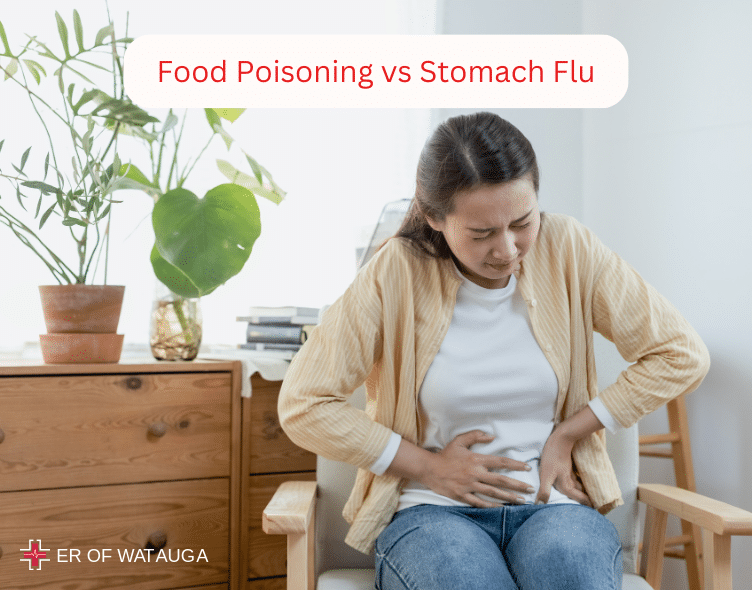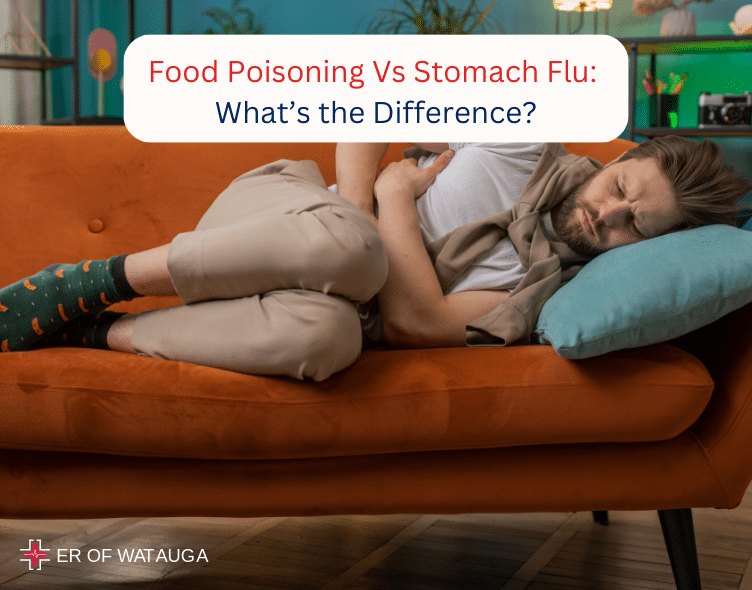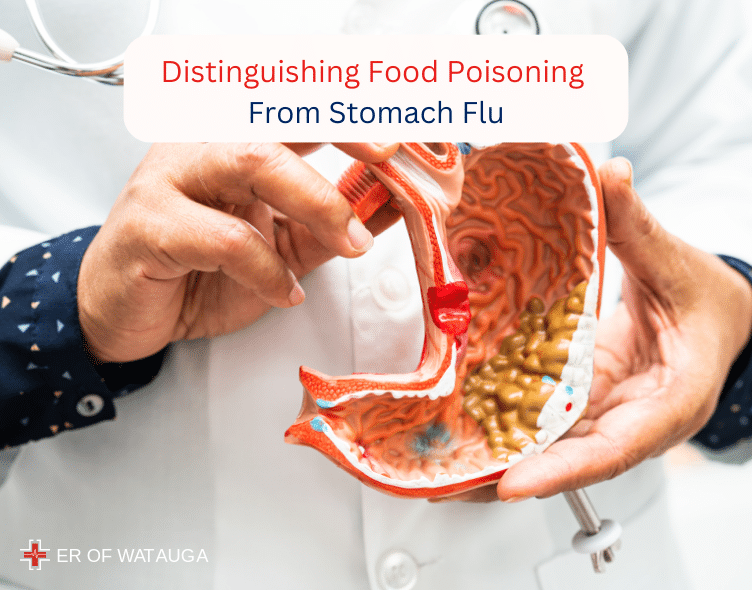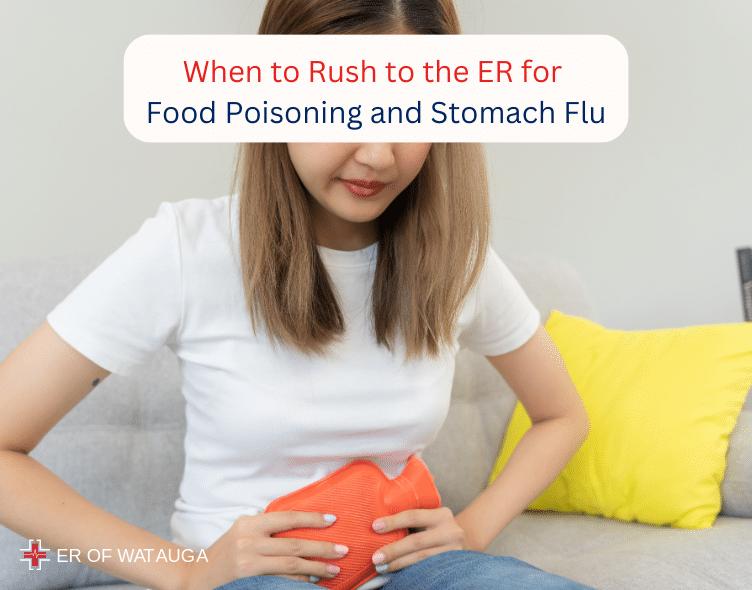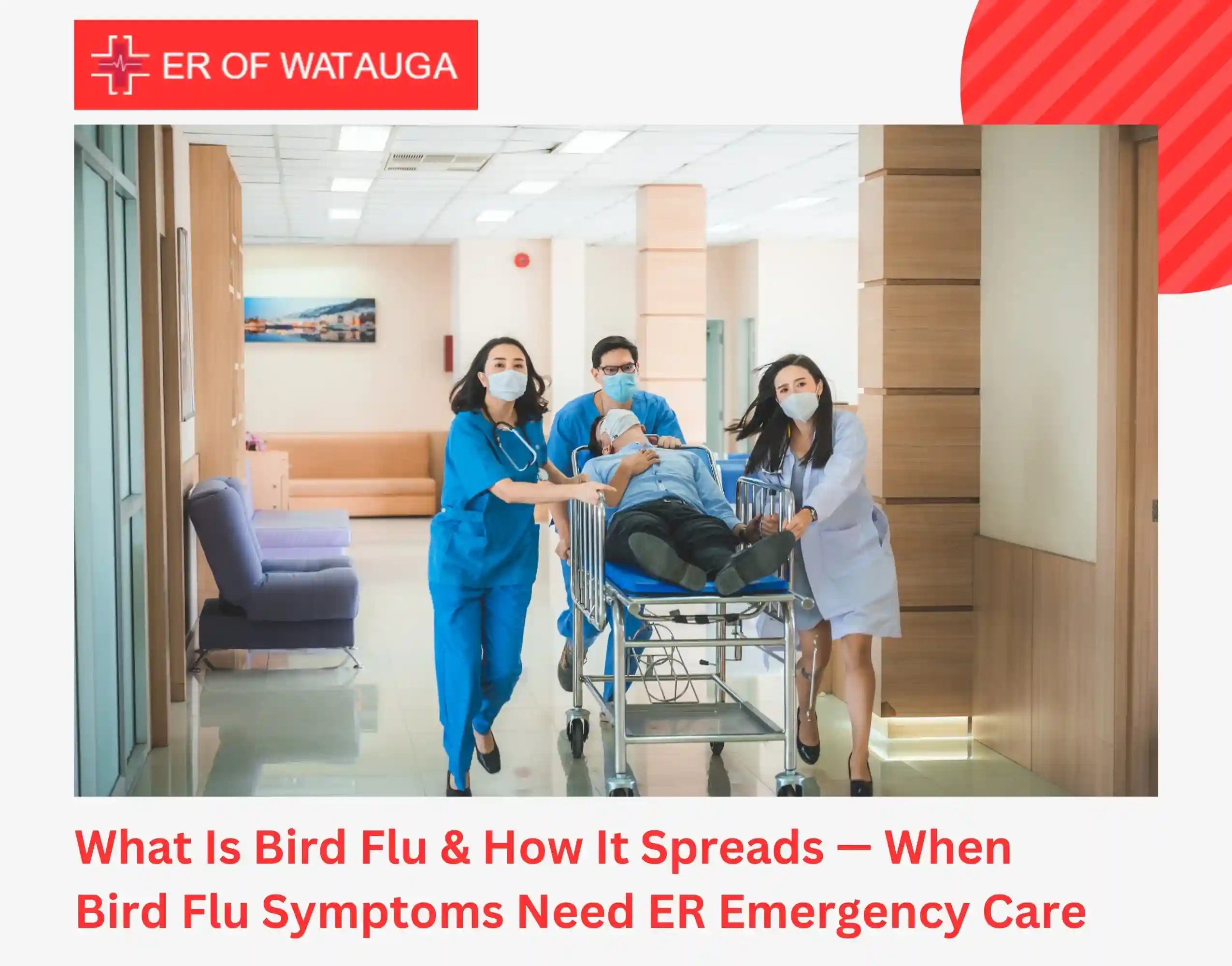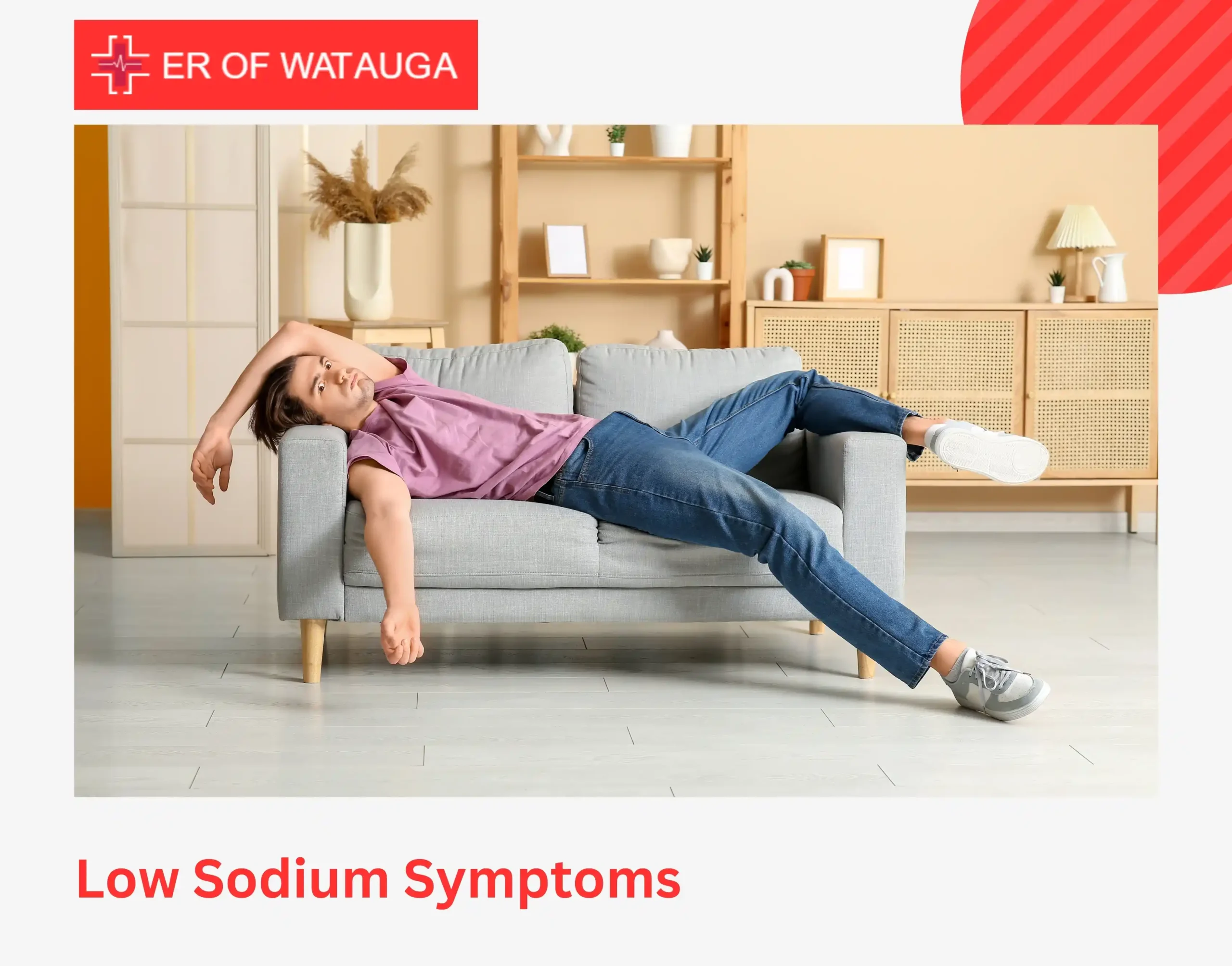Nausea. Vomiting. Diarrhea. Your stomach is in turmoil, but what’s the culprit? Is it food poisoning or stomach flu?
These common digestive ailments share symptoms, but they’re far from identical. Understanding their causes and differences could be key for proper treatment and complete recovery.
From contaminated food to viral infections, each condition has its unique cause and course. But how do you know which one you’re dealing with?
Food Poisoning Vs Stomach Flu: What’s the Difference?
Food Poisoning
Food poisoning results from eating spoiled or contaminated food. It’s usually not serious, with most cases resolving on their own without treatment. The most common culprit is a bacteria called campylobacter, which can trigger symptoms within hours of the ingested food.
Stomach Flu
Also known as gastroenteritis, stomach flu is the inflammation of the gastrointestinal tract. It’s caused by enteric viruses like rotavirus and norovirus. Stomach flu spreads through various routes, including fecal-oral transmission, direct contact with the infected person, or consuming contaminated food or water.
Distinguishing Food Poisoning From Stomach Flu
Symptoms of Food Poisoning vs Stomach Flu may appear identical, but some differences can help you identify the condition you’re facing.
Incubation Period
- Food poisoning has a very short incubation period. Its severity and duration depend upon the type of pathogen and the amount of adulterated food taken. The symptoms usually appear within hours of eating contaminated food and often resolve within 1-2 days.
- Stomach flu normally has an incubation period of 1-3 days after exposure, with symptoms lasting up to a week.
Key Symptoms
Both conditions can cause nausea, vomiting, and diarrhea, but some symptoms are more characteristic of each:
- Food poisoning often causes high fever with chills, severe stomach cramps, and dehydration. Symptoms are intense but short-lived.
- Stomach flu is more likely to produce low-grade fever, headache, muscle ache, and general fatigue. The symptoms may be milder but last longer.
Causes
- Contaminated food, poor food handling practices, and bacteria (e.g., Salmonella, Listeria, E. coli) commonly cause food poisoning.
- Viruses such as rotavirus and norovirus are common culprits for stomach flu. It’s common in crowded environments and spreads through person-to-person contact or contaminated surfaces.
Understanding the causes of stomach flu and food poisoning is essential for choosing the right treatment options.
Prevention Strategies
Both food poisoning and stomach flu can be prevented through good personal hygiene and food safety practices. Here’re some tips to keep you and your loved ones safe:
Preventing Food Poisoning:
- Cook Thoroughly: Make sure meats, poultry, and eggs are fully cooked to kill harmful bacteria.
- Avoid Cross-Contamination: Use separate cutting boards for raw foods and ready-to-eat items.
- Practice Safe Food Handling: Take precautions when dealing with raw food to prevent contamination.
- Clean Thoroughly: Wash hands, utensils, and surfaces before and after food preparation.
- Store Safely: Maintain adequate food storage for perishable foods.
Preventing Stomach Flu
- Promote Good Hygiene: Wash hands regularly with soap and water. Wear disposable or rubber gloves in high-risk areas.
- Disinfect High-Touch Areas: Decontaminate surfaces using steam cleaning or chlorine bleaching.
- Limit Exposure: Avoid direct contact with infected individuals when possible.
- Ensure Food & Water Safety: Consume only uncontaminated food and drinks.
Treatment Options
When prevention fails, you can ensure a speedy recovery by following appropriate food poisoning and stomach flu treatment:
Treating Food Poisoning
- Hydrate: Drink clear fluids, such as water, broths, or oral rehydration solutions.
- Rest: Allow your body time to recover through adequate sleep and relaxation.
- Medication: Over-the-counter anti-diarrheal or anti-nausea medications may provide relief.
- Seek Medical Care: For severe cases involving high fever, blood in stool, signs of dehydration, immediately seek emergency care.
Managing Stomach Flu
- Rehydrate: Focus on hydration with electrolyte replacement solutions.
- Rest: Take adequate rest to support your body’s recovery process.
- Symptoms Management: Use over-the-counter medications to alleviate fever or mild digestive discomfort.
If symptoms persist for four or more days, or if you experience severe abdominal pain or signs of dehydration, seek prompt medical attention.
Food Poisoning vs. Stomach Flu in Children
When it comes to food poisoning vs stomach flu in kids, swift action can make all the difference. Symptoms can escalate rapidly in children, turning a manageable condition into a medical emergency within hours.
Dehydration poses a particularly severe threat to kids. Lost fluids and electrolytes should be quickly replenished, often through oral rehydration solutions. Seek immediate medical attention if you observe these warning signs of dehydration in kids:
- Dry mouth
- Absence of tears when crying
- Decreased frequency of urination
If you notice any of these symptoms, don’t wait – seek urgent pediatric care.
When to Rush to the ER for Food Poisoning and Stomach Flu
Most cases of food poisoning and stomach flu can be managed at home, but if you notice any of the following, it’s time for urgent care:
- High fever
- Persistent diarrhea or vomiting
- Signs of severe dehydration
- Blood stools
- Extreme lethargy
The ER of Watauga operates 24/7 to provide instant care for emergency conditions without delay. Our expert medical team is equipped to handle even the most severe cases of food poisoning and stomach flu. From IV fluids therapies to flu tests and targeted symptomatic relief, we ensure top-tier care for all your medical needs.
FAQs
How Is Stomach Flu Different From Food Poisoning?
Food poisoning is caused by contaminated food while stomach flu is commonly viral.
What’s the Duration of Symptoms of Poisoning and Stomach Flu?
Symptoms of food poisoning normally last from hours to a couple of days. Conversely, stomach flu has an extended incubation period with symptoms lasting 1-3 days or more.
Can I Deal with Food Poisoning and Stomach Flu at Home?
Mild cases of both conditions can be treated at home by rest and hydration. Although serious conditions require professional medical intervention.
Should I Report to the ER for Stomach Flu and Food Poisoning?
In cases like severe dehydration, high fever, or persistent vomiting and diarrhea, it’s wise to seek urgent medical care.
